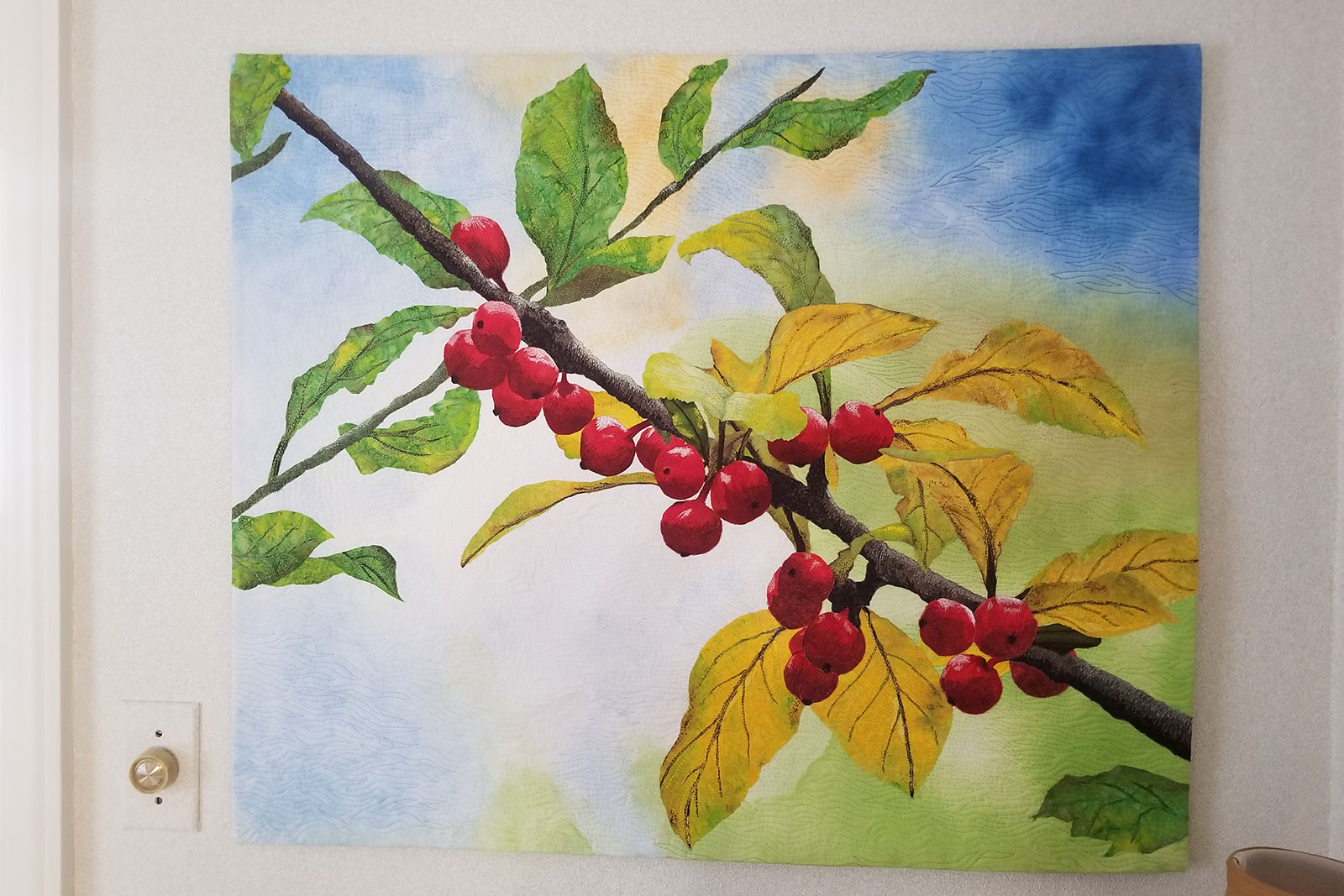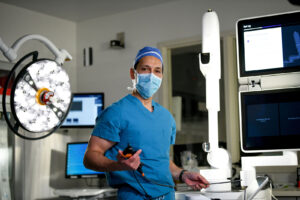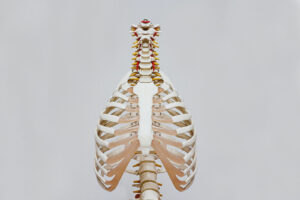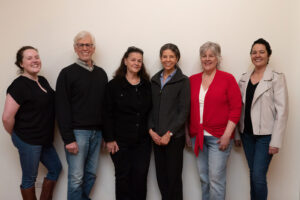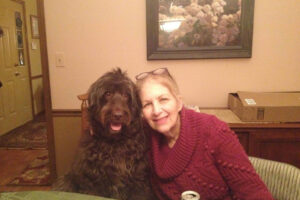Nearly 12 years ago, Kathy Hren was diagnosed with advanced stage IV lung cancer, and despite what statistics say about stage IV cancers, she’s still here. With the help of anaplastic lymphoma kinase (ALK) inhibitors, self-advocacy and the power of positive thinking, she says these years have been the best of her life.
“Lung cancer crept into my life in 2011,” says Hren. “I had a bit of a dry cough. It was in the spring. Everybody else in the family seemed to have a bit of a cough, but theirs went away. Mine didn’t.” Hren thought it could be allergies, but after noticing shortness of breath, she went to see her general practitioner.
“[The doctor] did some X-rays and there was some opacity in both lungs, which is common with pneumonia. So, we were thinking pneumonia,” says Hren. “She sent me to a pulmonologist. I went through a couple of series of antibiotics and that didn’t clear up the X-rays at all. [They] remained the same.” Hren’s pulmonologist, after conducting a series of breathing tests, a CT scan and a bronchoscopy the following week, gave Hren a diagnosis she never expected.
“The next day I got the diagnosis of adenocarcinoma of the lungs. It was in both lungs, [which meant] advanced stage IV cancer,” Hren says. “That was a real mindblower because I had never smoked. I was 59 years old.”
Life as Hren knew it changed after receiving her diagnosis. She and her husband informed their children about the devastating disease and had a lawyer come to the house to get Hren’s affairs in order. An oxygen truck delivered tanks to be stored in their garage, and an oxygenator machine was set up not far from Hren and her husband’s bedroom.
She sought care and treatment at the University of Michigan Hospital, where her oncologist told her reaching Christmas that year would be a good goal. Hren was diagnosed on October 18 — meaning her outlook was less than two months. However, Hren was discovered to have the ALK gene through biomarker testing — a way to look for genes, proteins, and other substances that can provide information about cancer.
“[The gene] only makes up [around] 5% of lung cancer patients, and generally, people who never smoke are diagnosed with an ALK mutation, so it’s almost like hitting the lottery when you get that news. Of course at the time I didn’t know that,” says Hren. “If you’re going to have lung cancer, you want to fall under that slot. I don’t know how else to put it, truthfully.”
At the time of Hren’s diagnosis, only one approved targeted drug therapy for ALK-positive lung cancer patients — a pill called Crizotinib. Hren would take one pill in the morning and one at night. “After one week of taking the Crizotinib,” says Hren, “I was off oxygen and dancing through the house. It was remarkable. Miracle stuff. And I can tell you, there are few life experiences that compare to a cancer remission. I [was] getting a second chance.”
Hren’s next scan after starting Crizotinib showed only microscopic traces of her cancer. The drug was not supposed to be a long-term solution, as Hren’s doctor told her it most likely would only work for a year, but it allowed Hren to be around for the birth of her granddaughter 10 months after starting the pill.
According to the National Library of Medicine, the ALK gene was not discovered until 2007, when scientists found that ALK gene rearrangements were present in a small subset of non-small cell lung cancers. ALK-positive cancers were found to be highly sensitive to ALK kinase inhibitors such as Crizotinib. And while ALK inhibitors can induce remission and extend the lives of patients, once resistance to these drugs develop, a new inhibitor must be tried. Resistance will typically develop after one or two years.
Dr. Shirish Gadgeel, chief of hematology and oncology at Henry Ford Cancer Institute, has been Hren’s oncologist since 2014. “Before 2007, we didn’t know about ALK being a mutation that can drive lung cancers,” explains Gadgeel. “We knew about it only in lymphomas.” Once the report about ALK came out in 2007, the pharmaceutical company Pfizer conducted trials to test lung cancer patients for ALK, and they became the first set of researchers to link an ALK mutation with some forms of lung cancer. After giving ALK inhibitors to patients participating in the trial, they saw “remarkable benefits,” according to Gadgeel. “That led to newer drugs being developed to overcome the deficiencies of the first drug, and now we have patients who are living for eight to 10 years with stage IV lung cancer.”
And for Hren, it’s been even longer. “For 11 years, I’ve been getting scans every three months,” says Hren. She explains how getting a good report from a scan is “such a high.” However, that high only lasts around six weeks before Hren starts to worry about what her next three-month scan will look like. “I almost compare it to post-traumatic stress disorder, where you just can’t get away from it.”
To take her mind off her “scan-itis” and to give back, Hren — an avid quilter and lover of fabric — stitched hundreds of children’s pillowcases for a cancer organization called Ryan’s Case for Smiles, whose mission is to create and distribute pillowcases that give children an emotional boost and remind them they are not alone.
Hren was able to remain on Crizotinib until March 2014 — almost two and a half years after she was first diagnosed. But her cancer progressed that spring. “There was a drug trial for those that progressed off the drug I was on, and it was offered at Karmanos Cancer Institute here in Detroit. It was a Phase II trial, and Dr. Gadgeel was leading the trial,” Hren says.
After going through the initial evaluation and testing, Hren qualified, and received her first dose of Alectinib — another ALK-inhibitor drug — the next day. The drug was only supposed to work for seven months, but Hren was on it for eight years.
“I stayed with Dr. Gadgeel, my beloved oncologist,” says Hren. “He left Karmanos for a position at [the] University of Michigan, and then he left there for an offer where he is now, for chief of hematology/oncology at Henry Ford. And that’s where I continue to see him now.”
Side effects for Hren were minimal, and she was able to lead, in her words, a pretty normal life. “There’s never really true bliss, or going back to living with gay abandon,” she says. “It’s like living in a temporary state. Do you buy a new pair of shoes, or will the shoes you have last another six months? That’s the state of mind that one lives in, and it’s not bad because I keep telling myself, what’s the alternative? Being dead. Well, you’re not dead yet. You have to have that mindset to live in the day. Just live your life.”
After Hren’s diagnosis and throughout her cancer journey, she became an avid art quilter and has since made two dozen art quilts. “I’ve been in shows, I’ve won awards and I’ve been the featured artist in [two] shows,” says Hren. She has always loved fabric, and used to sell fabric online, but quilting was something that grew out of her cancer journey.
Whenever Gadgeel lectures and displays Hren’s scans, he also shows photos of her quilts. “[Quilting] has been my therapy,” she says. “You hear of art therapy, well, there’s some truth to that. I can lose myself in it. I’ve got a fabric stash upstairs, downstairs, my studio is in the back of the house. I can go in there for hours and hours.”
In March 2022, with the help of Gadgeel, Hren started her third targeted-drug therapy, Brigatinib. “It needs to be known how [Gadgeel] helped me and persevered with me,” says Hren. “He’s gifted, he’s kind, he’s dedicated, he’s very thorough.”
And because of this, two months turned into 11 years. “I can honestly say that the past 11 years of my life have been the best years of my life,” Hren says. “Being able to meet my grandchildren and attend my younger son’s wedding. One can do a lot of living in 11 years. Travel, not so much. Every available moment was spent with my children and their children. That’s how I wanted to spend my time. If they were available, I was available.”
With research on Hren and Gadgeel’s side, the hope is that more ALK-positive patients will have similar outcomes to Hren. “We are trying to understand which ALK-positive lung cancer patients are going to have outcomes like Ms. Hren had, and which patients are not likely to have good outcomes,” says Gadgeel. “If we understand that right in the beginning, we could then tailor the treatment so that we give something extra to the patients who are not going to do well, and maybe help them have the kind of outcome that Ms. Hren had.”
Currently, the focus is on biomarker testing to see whether treatment can become even more personalized for ALK-positive lung cancer patients.“I consider myself a spoiled lung cancer patient,” says Hren. “I told Dr. Gadgeel this and I’m not sure if he appreciates that or likes it, but really, over the years, I’ve only taken a pill. In 11 years, I have never had to have traditional chemo, radiation — I’ve never had surgery, other than bronchoscopies — and I’ve been able to lead a normal life. There is the anxiety that overlays all of this. That never goes away. You can’t really get away from that.”
And while it can be disheartening to be in active treatment for over 11 years, Hren makes sure that she lives each day to the fullest. “I’m not that special of a person,” she says. “I don’t have great accolades, but I can say that I practice survivorship. I don’t really consider myself a cancer survivor. I think a true cancer survivor is someone that actually beat it, and they’re out of treatment. I’ve never really been out of treatment, so I say I practice survivorship.”
Hren urges all cancer warriors and thrivers to think positively and to be their own advocate. She also makes it a point to continue her primary wellness checks, because having cancer doesn’t mean there is no potential to have other health issues.
“Eleven years and I’m still here,” says Hren. “I don’t know how many more. I’m always thinking it’s the last Christmas, the last summer, and that’s what cancer has done for me. It has spoiled holidays and birthdays for me.” And yet, she acknowledges that without her treatment or research into ALK-positive lung cancer, she would not have met her grandchildren. And for that, she has the utmost gratitude. “I just feel so blessed. I can’t imagine having missed meeting them. And for those that don’t get that chance, I give them an extra hug.”

